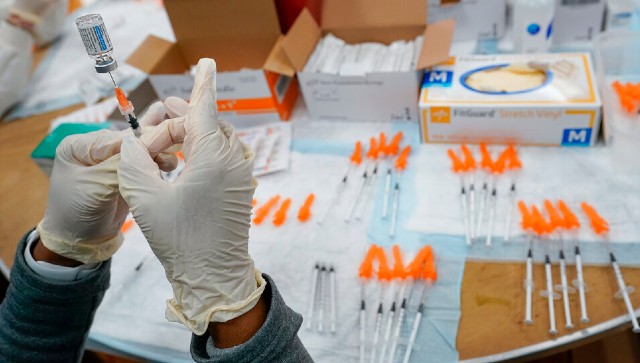Scientists have used key ingredients from plant and bacterial viruses to develop new COVID-19 vaccine candidates that do not need to be refrigerated. The fridge-free vaccines, described in the Journal of the American Chemical Society on Tuesday, triggered high production of neutralising antibodies in mice against SARS-CoV-2, the virus that causes COVID-19. If they prove to be safe and effective in people, the vaccines could be a big game-changer for global distribution efforts, including those in rural areas or resource-poor communities, the researchers noted. “What is exciting about our vaccine technology is that is thermally stable, so it could easily reach places where setting up ultra-low temperature freezers, or having trucks drive around with these freezers, is not going to be possible,” said Nicole Steinmetz, a professor at the University of California San Diego, US. The researchers created two COVID-19 vaccine candidates. One is made from a plant virus, called cowpea mosaic virus. The other is developed from a bacterial virus, or bacteriophage called Q beta. They used cowpea plants and E. coli bacteria to grow millions of copies of the plant virus and bacteriophage, respectively, in the form of ball-shaped nanoparticles. The team harvested these nanoparticles and then attached a small piece of the SARS-CoV-2 spike protein to the surface. The spike protein helps the SARS-CoV-2 virus to infect and enter the human cells. The finished products look like an infectious virus so the immune system can recognise them, but they are not infectious in animals and humans. The small piece of the spike protein attached to the surface is what stimulates the body to generate an immune response against the coronavirus. The researchers note several advantages of using plant viruses and bacteriophages to make their vaccines. For one, they can be easy and inexpensive to produce at large scales. “Growing plants is relatively easy and involves infrastructure that is not too sophisticated,” said Steinmetz. “And fermentation using bacteria is already an established process in the biopharmaceutical industry,” he added. Another big advantage, the researchers said, is that the plant virus and bacteriophage nanoparticles are extremely stable at high temperatures. As a result, the vaccines can be stored and shipped without needing to be kept cold. They also can be put through fabrication processes that use heat. The team is using such processes to package their vaccines into polymer implants and microneedle patches. These processes involve mixing the vaccine candidates with polymers and melting them together in an oven at temperatures close to 100 degrees Celsius. Being able to directly mix the plant virus and bacteriophage nanoparticles with the polymers from the start makes it easy and straightforward to create vaccine implants and patches. The goal is to give people more options for getting a COVID-19 vaccine and making it more accessible, the researchers said. The implants, which are injected underneath the skin and slowly release vaccine over the course of a month, would only need to be administered once, they said. The microneedle patches, which can be worn on the arm without pain or discomfort, would allow people to self-administer the vaccine. In tests, the team’’s COVID-19 vaccine candidates were administered to mice either via implants, microneedle patches, or as a series of two shots. All three methods produced high levels of neutralising antibodies in the blood against SARS-CoV-2. These same antibodies also neutralised against the SARS virus, the researchers found. The new COVID-19 vaccines could potentially be effective against the variants of concern, the researchers said, adding tests are currently underway to see what effect they have against the Delta variant. The vaccines still have a long way to go before they make it into clinical trials, they said. The team will test if the vaccines protect against infection from COVID-19, as well as its variants and other deadly coronaviruses, in vivo.
The researchers created two COVID-19 vaccine candidates. One is made from a plant virus, called cowpea mosaic virus. The other is developed from a bacterial virus, or bacteriophage called Q beta.
Advertisement
End of Article


)

)
)
)
)
)
)
)
)



